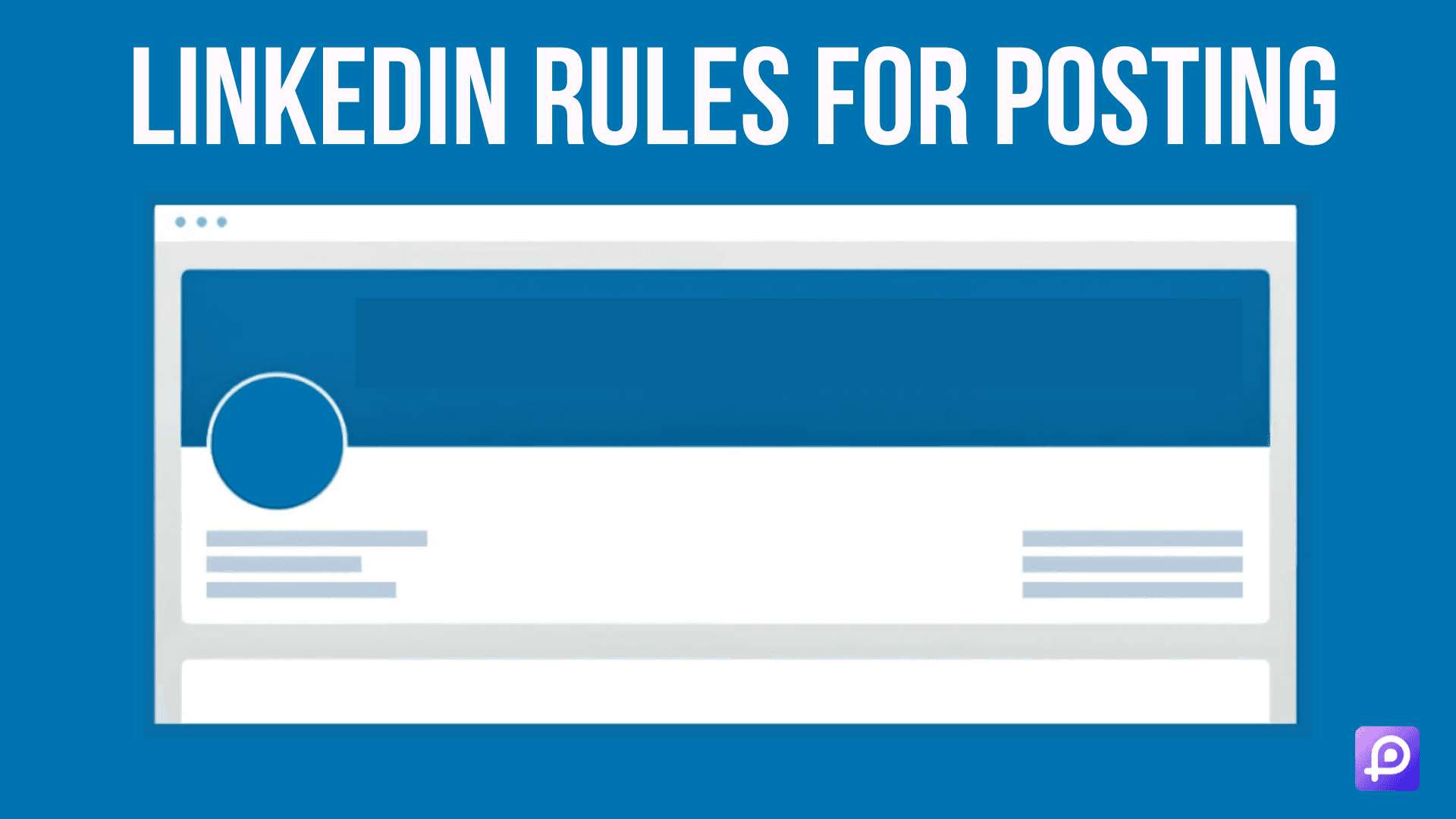
Quick overview:
Understanding LinkedIn's content policies
5 key LinkedIn posting guidelines
Types of content allowed and prohibited
How to handle post removals?
Best practices for professional content creation
Are you tired of seeing your LinkedIn posts disappear without a trace?
It's frustrating, isn't it?
You spend time crafting the perfect post, only to find it gone the next day.
But here's the thing: LinkedIn has rules. And if you want your content to stick around, you need to play by them.
In this guide, we'll dive deep into the LinkedIn rules for posting in 2024. We'll explore what's allowed, what's not, and how to create content that not only stays up but also engages your network.
Ready to become a LinkedIn posting pro? Let's get started.
Understanding LinkedIn Posting Guidelines: The Basics
Why does LinkedIn have such strict rules for posting?
Simple: To maintain a professional environment and ensure quality content for its users.
But what exactly are these guidelines?
Here are the basics:
Keep it professional: LinkedIn is a business platform, not a personal social network.
Provide value: Share insights, not sales pitches.
Be original: Plagiarism is a big no-no.
Respect others: No hate speech, discrimination, or harassment.
Stay legal: Avoid anything that violates laws or regulations.
Remember, these guidelines aren't meant to stifle your creativity. They're designed to create a platform where professionals can share valuable insights and build meaningful connections.
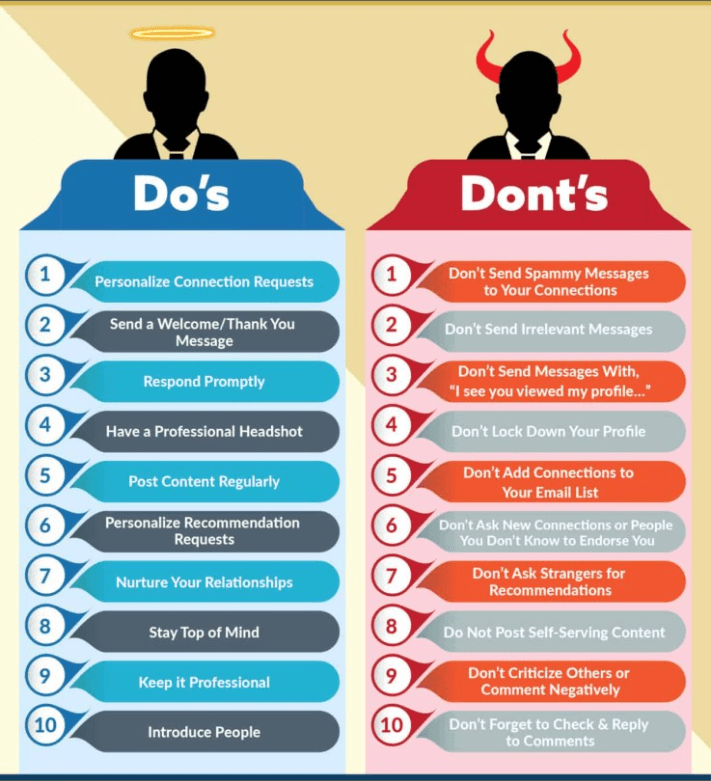
5 Essential LinkedIn Rules for Posting in 2024
Now, let's dive deeper into the specific rules you need to follow to keep your content alive and thriving on LinkedIn.
1. Content Ownership and Distribution
Did you know that you retain ownership of your original content on LinkedIn?
It's true. But there's a catch.
While you own the rights to your articles, LinkedIn can distribute and annotate your content. They can even sell advertising on pages where your content appears.
What does this mean for you?
Your content can reach a wider audience through LinkedIn's distribution.
LinkedIn might add notes to your content (e.g., highlighting that your views aren't necessarily LinkedIn's views).
You might see ads alongside your content.
Remember: Once you publish on LinkedIn, your content becomes publicly available and shareable.
2. Professional Content Only
LinkedIn isn't the place for your vacation photos or your latest culinary creation.
So, what kind of content should you post?
Focus on:
Industry insights
Career advice
Professional achievements
Company updates
Thought leadership pieces
Avoid:
Personal life updates (unless directly related to your professional life)
Non-business surveys
Get-rich-quick schemes
Anything illegal or unethical
Pro tip: Before posting, ask yourself, "Would this be appropriate in a professional networking event?" If the answer is no, it probably doesn't belong on LinkedIn.
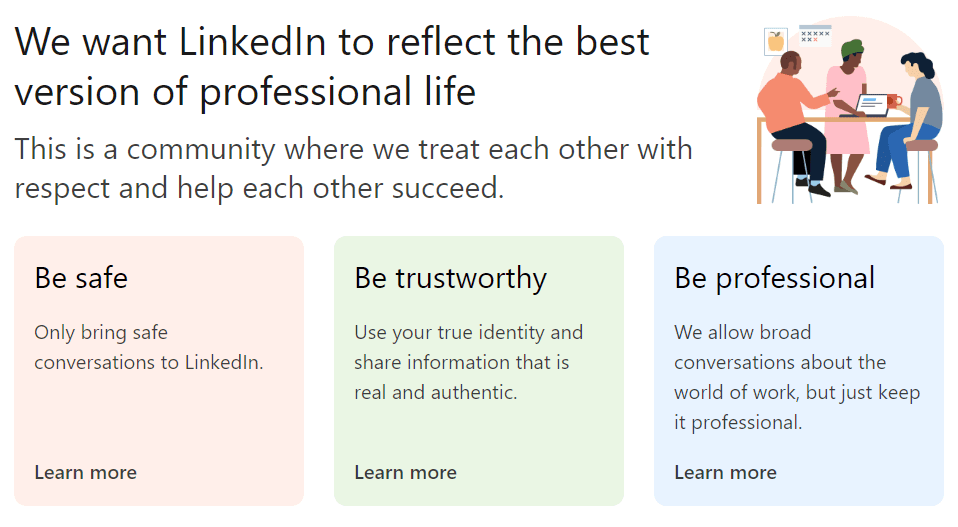
3. No Job Postings or Promotions in Articles
Here's a common mistake: using LinkedIn's publishing platform for job postings or promotions.
Don't do it.
LinkedIn has specific features for job postings and advertising. Using the article platform for these purposes violates their guidelines.
Instead:
Use LinkedIn's job posting feature for open positions.
Use LinkedIn Marketing Solutions for advertisements and promotions.
Remember: The publishing platform is for sharing knowledge and insights, not for direct marketing or recruiting.
4. Respect Intellectual Property Rights
Have you ever been tempted to share that perfect quote or image you found online?
Think twice.
LinkedIn takes intellectual property rights seriously. Using copyrighted material without permission can lead to your content being removed or even your account being disabled.
How to stay safe:
Create original content
Use royalty-free images or create your own graphics
Always attribute quotes and ideas to their original sources
Get permission before using someone else's content
Remember: It's better to create less content that's 100% original than to risk using copyrighted material.
5. Be Truthful and Accurate
In the age of "fake news," accuracy is more important than ever.
LinkedIn values truthful, factual content. Posting misleading or fraudulent information can lead to content removal and account suspension.
Best practices:
Fact-check your posts before publishing
Use reliable sources for any statistics or data
If you make a mistake, correct it promptly and transparently
Clearly label any opinions as such
Remember: Your LinkedIn posts reflect on your professional reputation. Accuracy builds trust with your network.
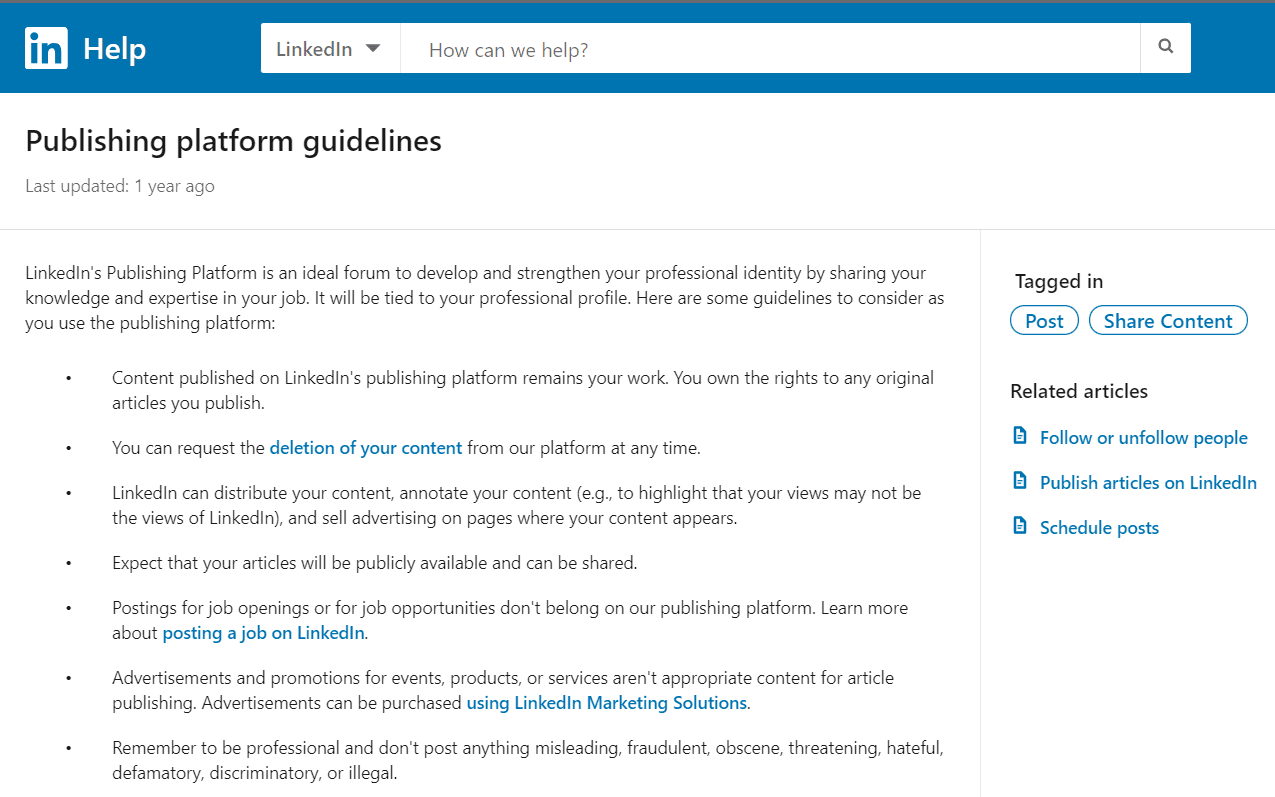
What Happens If LinkedIn Removes Your Post?
Despite your best efforts, you might find one of your posts removed. Don't panic!
Here's what to do:
Review the email: LinkedIn will send you a notification explaining why your post was removed.
Check the guidelines: Make sure you understand which rule you might have violated.
Appeal if necessary: If you believe your post was removed in error, you can appeal the decision.
How to appeal:
Click the "appeal" link in the notification email
Explain clearly why you believe your post adheres to LinkedIn's guidelines
Provide evidence or examples to support your case
Be polite and professional in your appeal
LinkedIn aims to review appeals within 72 hours. If they agree your post was wrongly removed, it will be reinstated.
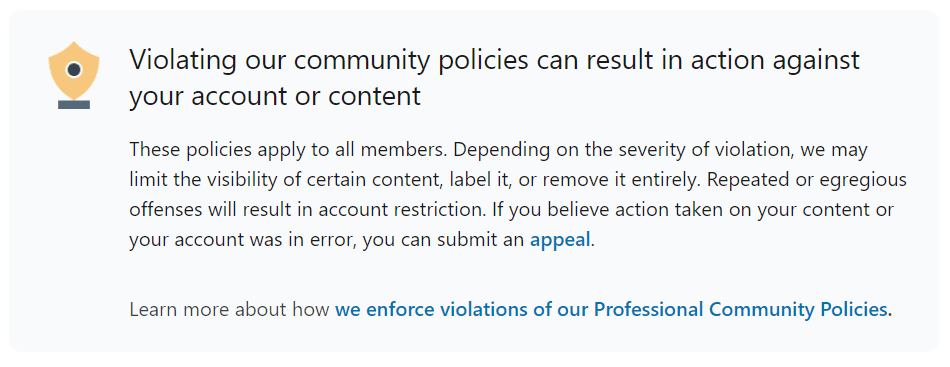
LinkedIn Posting Guidelines: Best Practices for Success
Now that you understand the rules, how can you create content that not only follows guidelines but also engages your network?
Here are some best practices:
Know your audience: Tailor your content to your professional network's interests.
Be consistent: Regular posting keeps you visible in your connections' feeds.
Use rich media: Incorporate images, videos, or infographics to make your posts more engaging.
Encourage interaction: Ask questions or invite comments to boost engagement.
Time your posts: Use LinkedIn analytics to determine when your audience is most active.
Quality over quantity: It's better to post less frequently with high-quality content than to flood your network with mediocre posts.
Be authentic: Share your genuine thoughts and experiences. Your unique perspective is valuable.
Remember, success on LinkedIn isn't just about following rules. It's about providing value to your network and building meaningful professional relationships.
Are you ready to elevate your LinkedIn presence while staying within the guidelines?
Start by reviewing your recent posts. Do they align with LinkedIn's rules for posting? If not, how can you adjust your strategy?
Remember, these guidelines aren't obstacles. They're opportunities to refine your content and build a stronger professional brand.
Which LinkedIn posting guideline will you focus on implementing first?
By understanding and following LinkedIn's rules for posting, you can create content that not only stays on the platform but also resonates with your network and advances your professional goals.
Are you ready to become a LinkedIn posting pro? Start applying these guidelines today and watch your professional influence grow!
Enjoy reading post?
Follow me on :

